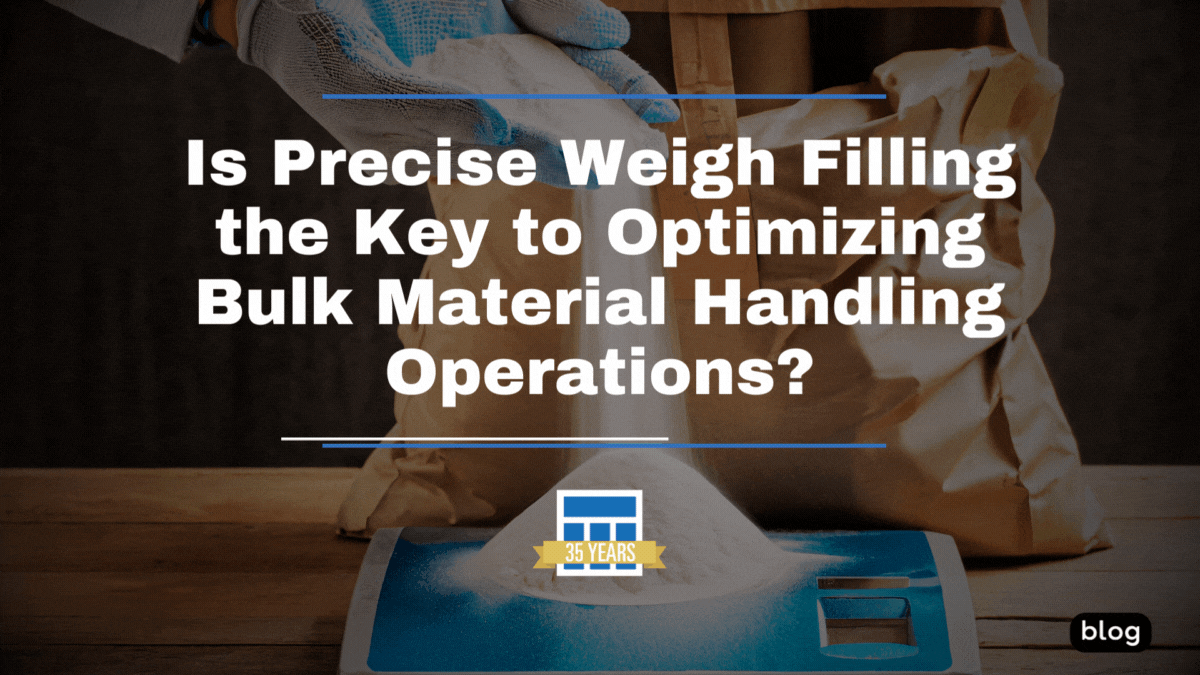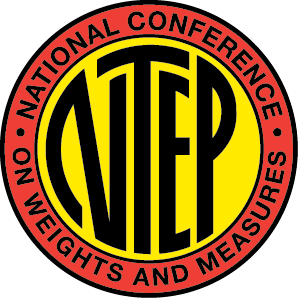
The accurate weigh-filling design features integrated into bulk bag-filling equipment are of utmost importance in ensuring efficient bulk material handling across various industries such as pharmaceuticals, food, chemicals, or nutraceuticals.
These capabilities help businesses optimize inventory management, reduce material costs, ensure quality assurance, comply with regulations, and improve operational efficiencies. Precision weigh-filling also plays a crucial role in business decision-making by providing accurate measurement data that can significantly impact the bottom line.
Inventory Management, Cost Savings & Improved Profitability
Inventory management is a key factor in determining a company’s success in the bulk material handling industry. To effectively manage inventory, businesses must ensure that materials within bulk bags, Gaylords, FBICs, and other containers are accurately measured. This allows for better tracking of inventory levels, which, in turn, reduces excess stock and minimizes stock-outs. Companies can reduce carrying costs and improve their bottom line by efficiently managing inventory. Bulk material manufacturers can optimize their operations and ensure they always have the right amount of inventory to meet customer demands.
Accurate weigh-filling systems reduce material costs and improve overall profitability. If routine calibration maintenance is performed regularly, ensuring that the correct amount of material is dispensed into each container or bag significantly minimizes overfilling and waste. This optimizes resource utilization and reduces material costs, leading to direct cost savings.
Cost savings and a better bottom line often come from optimized load capacities that provide accurate weigh-filling. Shipping costs are often calculated based on weight or volume. When bulk bags are consistently filled to the correct weight or volume, manufacturers can avoid unnecessary expenses associated with underfilled bags, such as paying for “air space” in shipping containers. Accurately filled bags also help avoid overweight shipments, which can result in additional charges or penalties by the carrier.
Quality Assurance, Regulation Compliance & Process Efficiencies
Consistently accurate weigh filling helps maintain product quality and consistency. It ensures that customers receive the specified quantity of material without variation or discrepancies. This goes hand in hand with regulatory compliance. The NTEP (National Type Evaluation Program), administered by the National Conference on Weights and Measures, requires that weighing and measuring equipment used in commercial transactions meet specific standards of accuracy and performance.
This certification plays a crucial role in the Manufacturing Sector, as it ensures the integrity of commercial transactions and promotes fair trade practices by verifying the accuracy and reliability of weighing equipment used within manufacturing processes. By complying with this certification, bulk bag filling systems fit with the automated design features, enhance market acceptance, adhere to the industry-recognized standard, and give customers confidence in the accuracy of the weight information the producer supplies them.
Accurate weigh filling improves overall process efficiencies. It reduces the need for manual intervention or adjustments, minimizes production downtime, and streamlines operations, leading to increased productivity and throughput.
Design Features That Improve Weight Accuracy in Bulk Bag Filling Applications
The Power-Fill®️ Limited provides an economical solution for low-volume applications. Though this is the most simplistic design, digital weight display options can be programmed for reliable, accurate gain in weight filling.
The Power-Fill®️ Select is designed with load cells added to the base of the frame, which can be configured for gain in weight filling and automation.
The Power-Fill®️ Pro exclusively offers a Hang Weigh Scale System in which the bulk bag is suspended from an isolated weighing assembly during the filling process. This provides an extremely accurate weight per bag-fill cycle.
It’s important to note that maintenance and calibration are essential to ensure the continued accuracy and reliability of your bulk material handling systems. This may include periodic inspections, cleaning, and recalibration to account for any changes in performance over time.
Precise weighing and filling are critical for manufacturers of bulk materials, helping them drive cost efficiency, ensure quality assurance, maintain compliance, optimize operational efficiency, enhance inventory management, and make informed decisions. Accurate weight filling is a fundamental component of efficient bulk material handling, allowing manufacturers to uphold their standards, meet customer expectations, and stay ahead of the competition in the market landscape.
Material Transfer offers a wide range of cost-effective bulk material handling solutions that are custom-designed and manufactured to fit your unique application challenges. Contact our team today to learn more.
FAQs
What are some common challenges or issues that companies might face when implementing accurate weigh-filling systems, and how can they be addressed?
Implementing accurate weigh-filling systems may pose challenges such as equipment calibration drift over time, potential mechanical failures, or variations in material flow rates affecting accuracy. Regular maintenance schedules, including calibration checks and equipment inspections, are crucial to address these issues and ensure consistent performance. Additionally, investing in quality equipment with robust design features and integrating advanced technologies like automated controls or sensors can help mitigate these challenges by providing real-time monitoring and adjustments to maintain accuracy.
Are there any specific regulatory requirements or standards that need to be followed when it comes to accurate weigh-filling in bulk material handling, and how does Material Transfer ensure compliance with these standards?
Regulatory requirements and standards play a significant role in accurate weigh-filling to ensure compliance with industry norms and fair trade practices. Material Transfer adheres to standards like NTEP (National Type Evaluation Program) to certify the accuracy and reliability of its equipment. Compliance involves rigorous testing and verification processes, guaranteeing that the weigh-filling systems meet specific standards for accuracy and performance, thus instilling confidence in customers and ensuring legal compliance within commercial transactions.
What are some potential cost considerations associated with implementing accurate weigh-filling systems, and how do these costs compare to the potential savings and benefits over time?
Implementing accurate weigh-filling systems involves upfront costs for equipment procurement, installation, and integration, along with ongoing expenses for maintenance, calibration, and personnel training. However, these investments are often offset by significant long-term savings and benefits. By reducing material waste, optimizing inventory management, and avoiding costly errors or compliance violations, companies can realize substantial improvements in operational efficiency, cost-effectiveness, and regulatory compliance. Additionally, enhanced productivity, reduced downtime, and improved product quality contribute to increased profitability and competitive advantage in the marketplace.




